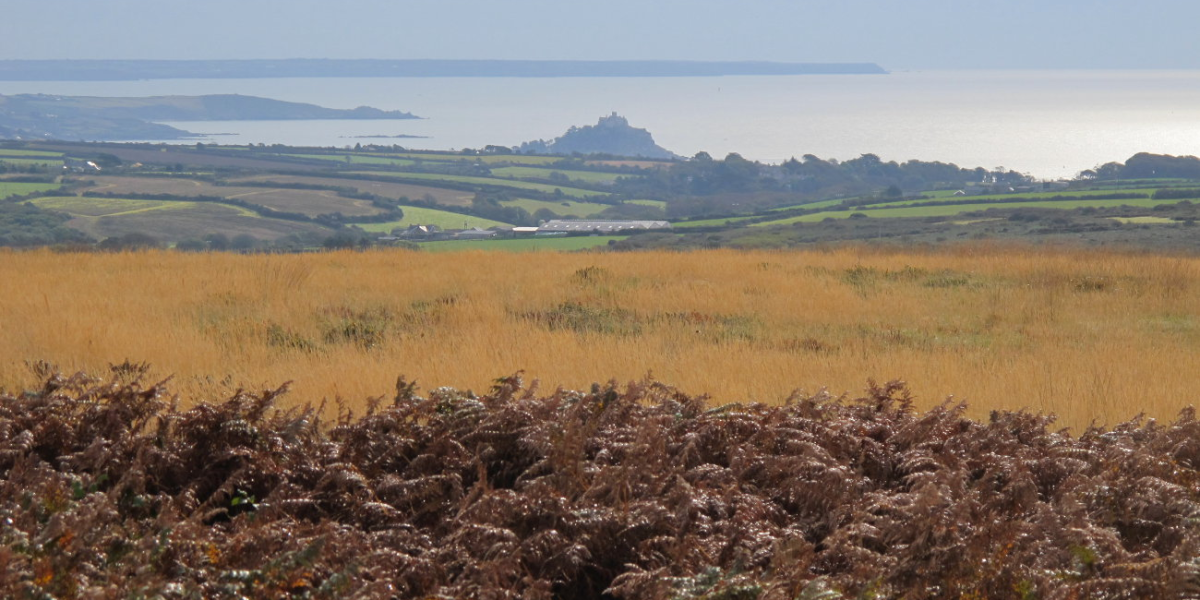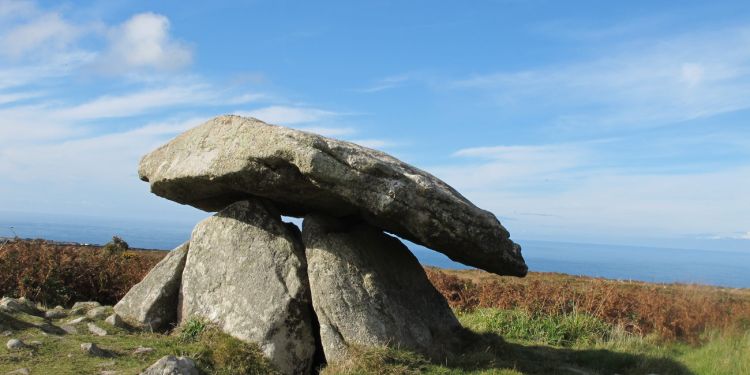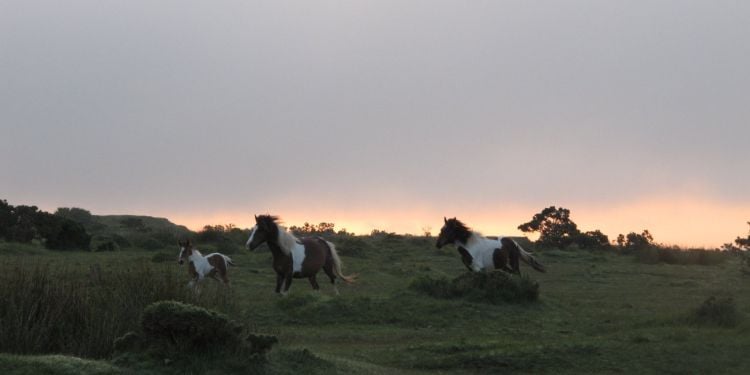
Born in New York, Ellen lived for a long time in Minnesota. A retired editor and teacher, has been driven by her passion for writing since she moved to Cornwall. Discover with Expat.com the everyday life of a novelist in the UK.
Where are you from, Ellen, and what are you doing nowadays?
I've published three novels: “Trip Sheets” with Milkweed Editions, “Open Line” with Coffee House Press, and “The Divorce Diet” with Kensington. The first was published before I moved to the UK, and the other two since. I'm currently wrestling with a nonfiction book about being an immigrant in Britain.
What's the difference between an immigrant and an expat? Tone, mostly. An expat has the glow of education and choice — maybe even of money. It implies some degree of comfort and protection. But are those of us, who could call ourselves expats, so different to the less protected people the world calls immigrants, migrants, even refugees? We live outside our home countries, with all the possibilities and difficulties and confusions that brings with it. Sometimes we're welcomed and sometimes we're resented. Like the more vulnerable immigrants, we're at the mercy of the political winds in our host countries — although most of us have protection from the storms.
In addition to being an immigrant myself, I'm also the granddaughter of immigrants. My father's parents left Russia at the end of the nineteenth century, looking for a better life for their children. They settled in New York. When I was a kid, I took what they'd done for granted. I understand more now about the courage it took.
I'm retired now, but I've worked as an editor, a teacher of writing, a cab driver, an assembly-line worker, a janitor, a file clerk (I lasted four days), and a receptionist (I lasted four fun-filled hours). Retired or not, I continue to write.
What procedures did you have to follow to move to the UK?
When my partner and I moved to Britain, writers fell into a category that led to indefinite leave to remain, and since we had both published we were eligible. But the rules changed and we got a letter telling us we had to leave the country. We ended up with lawyers, official forms, sleepless nights, and an appeal before we won the right to stay. We had tremendous support in our village, and that meant a lot to us.
We've since taken the British citizenship — anyone who wants to gory details can find them in my blog.

What has attracted you to Cornwall?
We were drawn here ten years ago because it's ridiculously beautiful. Something about it spoke to us, as if there'd always been a Cornwall-shaped gap in our lives. And the place itself still has that effect on us. But these days it's about the people we know and the life we've established here. It's become our home.
Was it difficult to find accommodation in Cornwall?
We live in a tourist area, with low wages and high prices. Finding a place to live is a battle. A lot of houses are either second homes, owned by people who leave them empty for most of the year, or holiday places, rented out for short-term stays. Year-round rentals are hard to find. And for those who want to buy, prices are high.
How do you find the British lifestyle?
I've never really known what a lifestyle is, so I'm not sure how to answer, but I'll give it a try. The American stereotype of the British is that they're cold and formal, but that hasn't been our experience. When we first moved here, a few friends introduced us to people they thought we'd get on with, so we could become part of the community. We live in a village, so community is no abstract idea. In our experience, people have been both warm and welcoming.
On the other hand, people here tend to be more ... inhibited. A friend calls us — in the kindest possible way — “the mad Americans.” There are the people who enjoy what they see as our lack of inhibition, and those who don't, keep their distance, and we all manage to live with that.
My partner and I are a same-sex couple, and the village has been surprisingly accepting. When we left the US, gay rights and gay marriage were more of an issue than they seem to be now. A neighbor had an anti-gay-marriage sign more or less permanently installed in her yard, although she was friendly to us in a distant, neighborly way. We'd gotten used to living with that sort of impersonal hostility. In the UK, that was absent, and it was like suddenly losing a toothache. We had no idea how nice it would be to live without it. It's not that there's no homophobia — there is, but it claims a much smaller space in public life.
Cornwall's a very white county, and we run into a kind of clueless racism that continues to shock us. I'm not talking about the racism that comes from people who believe they're superior because they're white, or English, or native born, but the kind that comes from people of goodwill who believe in equality but haven't learned to notice what they're saying, what they're singing, what they're displaying. For example, we regularly see golliwog dolls in stores, and occasionally in people's houses. It appeals to some people's nostalgia.

Have you been able to adapt yourself to the country and to its society?
We've become part of both the village and political life. Sometimes that means baking brownies for a fundraising event at the village hall. Other times it means showing up with a sign to oppose the closing of a local hospital. And sometimes it means that a friend shows up at the door, and asks if we have any gossip, a cup of tea, or both.
I've learned to make a decent cup of tea, not to mention a decent scone, but I'll never get the hang of roast dinners and I haven't spent any time feeling bad about that. So yes, I do feel that we've become part of the society, and we love it, but we don't blend in seamlessly, and don't expect to.
I keep my accent — I have no choice there, but if I had, I'd still keep it. To the extent that I can, I keep my American vocabulary. I'm a writer; my vocabulary is one of my tools. I've been told that I walk like an American, and why wouldn't I? I am an American. But to what extent does an immigrant owe it to her new country to adapt? I wrestle with some of the same issues as any other immigrant: Which elements of my self and my culture are adaptable and which ones are essential? What changes do I make out of respect for the people and culture around me, and what space do I or can I expect people to make for me?

What is your opinion on the cost of living in Cornwall?
The answer isn't simple. If you live here, you're covered by the National Health Service. For an American used to the gaps and expenses of the American system, that's huge. As far as I can tell, many expats feel they need private insurance as well, because the NHS is less than perfect. What isn't? For anyone who wants private health insurance, it's cheaper than in the US because it covers less. If you need emergency care, your private insurance won't be relevant — you'll use the NHS like everyone else because no one else has an emergency network.
Housing, on the other hand, is absurdly expensive, especially in the parts of Cornwall that are tourist centers, insane in London, and expensive elsewhere as well.
What do you miss the most about your home country?
Friends. The food. The ease of fitting seamlessly into the culture. The mix of cultures.
What has motivated you to write your blog “Notes from the UK”?
I started it just before “The Divorce Diet” was published to publicize the book. Writers have to be shameless about promoting themselves in the interest of promoting their books. But the blog took on a life of its own, and I've become addicted. I love the comments that readers leave and the community that's formed around it. It's pushed me to examine elements of the culture that I might otherwise ignore. For a recent post, I ended up researching the word cockwomble, which I'd heard recently, and might otherwise have laughed at and forgotten.



















